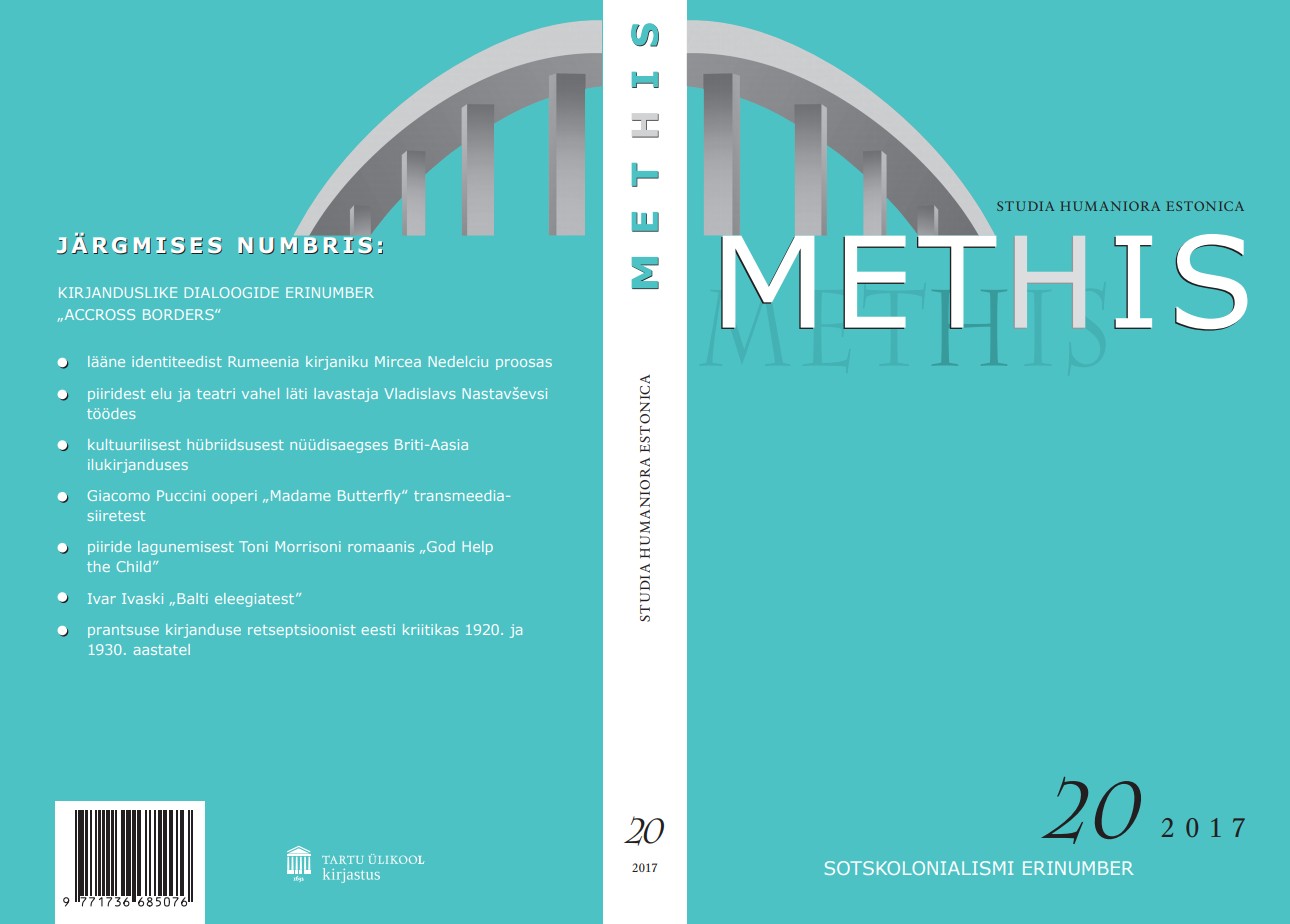„Kiri ütleb, et peab tuginema vene teadusele…“ ÜK(b)P Keskkomitee 16. juuli 1947. aasta kinnine kiri professorite N. Kljujeva ja G. Roskini süüasjas ja selle ajaloolisest kontekstist / Closed letter of the Central Committee of the All-Union Communist Party (Bolsheviks) of July 16, 1947: Its historical context
DOI:
https://doi.org/10.7592/methis.v16i20.13894Abstract
The main sources of Estonian history are predominantly stored in the Estonian archives, yet it is also impossible to ignore archival sources located in the archives of Russia when it comes to studying most topics of importance, particularly as regards the periods of the Russian Empire and the Estonian SSR. This article is concerned with the closed letter of the Central Committee of the All-Union Communist Party (Bolsheviks) of July 16, 1947 regarding the accusations against Nina Klyueva and Grigorij Roskin that served as an excuse for Joseph Stalin to initiate a massive anti-Western campaign directed and to establish an official Soviet patriotism in society. The closed letter of 1947 is one of the key documents that enables us to understand the circumstances of the internal politics of the late Stalinist USSR in the context of the developments leading to a confrontation of superpowers – the Cold War.
The organisational format of launching the campaign consisted in the so-called Courts of Honour that had been created upon the decree of the Central Committee of the AUCP(b) from March 28, 1947 and tasked with revealing “antipatriotic” transgressions and deeds “directed against state and society” and with public condemnation of “those found guilty”. The Soviet Court of Honour was designed as a form of instructing society, a new means of restraining the growing dissent; it was to meant to discipline the officials of the Party and state apparatuses and particularly to keep the intellectuals within the required ideological limits.
The first who were picked by Stalin as a warning example to be given a public condemnation were Professors Klyueva and Roskin, a married couple who already before the war had developed the so-called Preparation KR that was considered a promising cure for cancer. In 1946, the manuscript of a recently finalised monograph by Klyueva and Roskin on the topic of Preparation KR and a vial of the medicine were given to Americans under the auspices of scientific information exchange. This had been sanctioned by the authorities, but at the beginning of 1947 Stalin decided that it should be treated as betrayal of a state secret. Thus, an excuse, as well as the first “culprits” of a suitable category, was found to initiate a campaign against “those grovelling before the West“. It was launched on a broader scale with the help of the closed letter.
The closed letter – an informative and instructive letter sent to the Party organisations by the Party’s Central Committee explained topical issues of internal and external politics and, if necessary, also provided concrete guidelines for action for the Party apparatus – was an important control mechanism for the Soviet leadership and remained a weapon in the arsenal of the Party apparatus until the Communist Party’s withdrawal from the limelight in 1990. The closed letter was a means for the Kremlin to implement a new policy at speed, mobilise the society, or exert an ideological influence on it, if required.
Also in 1947, the closed letter proved a suitable means for Stalin to forward orders and information to guarantee the successful implementation of the anti-Western campaign. Preparations for the letter had been started by the apparatus of the Central Committee of the UCP(b) in May 1947, but the final polishes were given to it by Stalin who signed the document on July 16, 1947. After that, the letter was copied and sent to government institutions, party organisations of the Soviet republics, oblasts and krais according to a detailed plan of dissemination drawn up by the Central Committee of the UCP(b) – 9,500 numbered copies all in all. It was strictly forbidden to make additional copies of the letter; the existing copies were to be sent back to the Central Committee by a certain date upon which they were destroyed.
The discussion of the closed letter in the republics, oblasts, krais and relevant institutions followed a pattern established in Moscow lasting mostly during the period from July to October 1947. The public was not informed about the closed letter, but keywords of the letter that were highlighted in the discussions – blabbers, grovelers, anti-patriotism, etc. – started to appear in the media. In this way, an ideological background was created for the social processes that would follow in the coming years and peak in the Estonian SSR in the year 1950.
The campaign against “the grovelers before the West” resulted in a voluntary isolation of the Soviet Union from the rest of the world and seclusion behind the Iron Curtain. Its most disastrous results concerned research contacts that were virtually abolished on all levels. Research was even more clearly subjugated to the controlling political power, academic scholarly discussion was eliminated and the researchers endorsed by the Kremlin had a chance to crush their opponents. The secrecy in society increased to a considerable extent. Naturally, all these processes did not fail to influence the Sovietisation of the research and cultural life in the post-war Estonian SSR.
Awareness of the closed letter, as well as the more general effect and backstage circumstances of the anti-Western campaign conducted by the Kremlin, is certainly necessary when studying Sovietisation in the Estonian SSR as it highlights new facets in the power balance of the centre and the Republic, while facilitating the understanding of Moscow’s activities in the subjugation and directing of the fields of research and culture in the republic. Hitherto, the studies of the effect of the closed letter of 1947 on these processes have remained modest in specialised literature.


